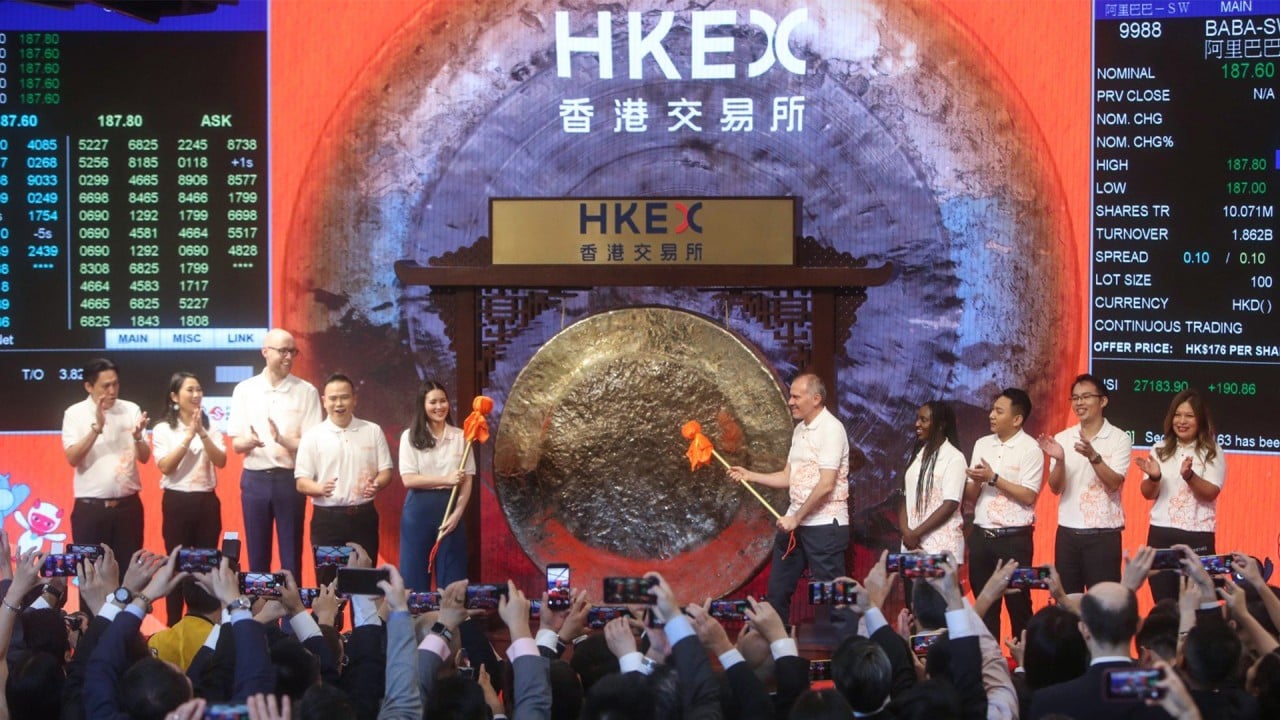
Tencent offers to take Chinese search engine Sogou private as US-China relations worsen
- Tencent, Sogou’s biggest shareholder, offers to pay US$9 a share for US-listed search engine operator
- Offer marks latest take-private transaction for a US-listed Chinese company amid strained relations between Washington and Beijing
Tencent Holdings made a preliminary, non-binding offer late Monday to take search engine Sogou private, the latest move to privatise a Chinese tech company as tensions worsen between Washington and Beijing.
The Beijing-headquartered company said a special committee of its independent directors would consider the proposal, but it had not “made any decisions” regarding the offer.

02:02
Chinese e-commerce giant Alibaba starts trading on Hong Kong stock exchange
Sogou, which has nearly 2,800 employees, was founded in 2005 and its controlling shareholder is Sohu, the Chinese video, internet search and online gaming group was founded by Charles Zhang.
The company listed in the US in 2017 and Tencent has been its biggest shareholder since 2013. It also serves as the default search engine for a range of Tencent products, as well as WeChat, as part of an ongoing collaboration agreement.
Tencent beneficially owns 39.2 per cent of Sogou’s outstanding shares and controls 52.3 per cent of its voting power, according to its proposal letter.
The Shenzhen-based tech giant said it had entered into an agreement with Mr. Zhang, Sogou’s chairman and chief executive, to vote in favour of the transaction. Mr. Zhang owns 6.4 per cent of the company’s outstanding shares.
Tencent said it intends to make the purchase with cash on hand and has engaged Goldman Sachs as an adviser on the transaction.
Jefferies analyst Thomas Chong said the proposal was a “surprise to the street” as analysts had not been anticipated that Tencent would privatise the search engine even though there have been a number of privatisation moves this year.
“We expect there will be more synergies between the two companies in search and smart devices in the future upon completion,” Chong said in a research note on Monday.
Since 2016, several large Chinese technology companies have delisted from American bourses, only to re-emerge with mainland listings.
“As recent frictions between the US and China continue to grow, with a number of American politicians calling for the delisting of Chinese firms trading on US bourses, Hong Kong-listed Tencent may been keen to mitigate risk by simply taking Sogou private,” said Mark Natkin, managing director of Marbridge Consulting, a Beijing market research and consulting firm focused on technology firms.
Natikin said the the timing also is good as Sogou’s share price, once as high as almost US$14 a share – had been trading at a historical low of less than US$3 in late May.
The heightened tensions have caused a number of Chinese companies to consider secondary listings closer to home in Hong Kong or to pursue so-called take-private deals.
58.com, a Chinese online classified advertisement site, agreed in June to be taken private by a consortium of investors led by Warburg Pincus and General Atlantic. The deal valued the company at US$8.7 billion.


